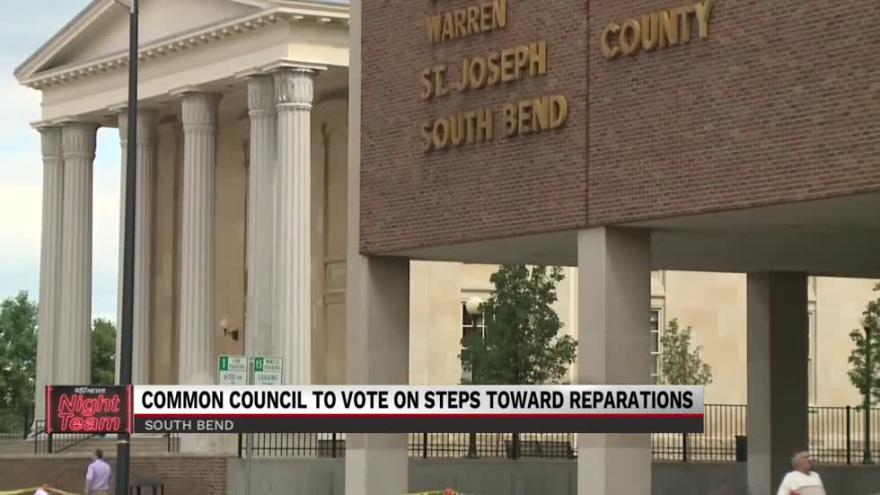Common Council removes Reparatory Justice resolution from Monday agenda
SOUTH BEND, Ind. - The South Bend Common Council has removed the Reparatory Justice resolution from Monday's meeting due to an apparent clerical issue.
In a statement issued Monday morning, Council President Sharon McBride and Vice President Sheila Niezgodski said the proposed resolution, "must be accompanied by a separate cover letter from the party initiating the resolution." This letter would identify the bill's sponsor, a committee to hear the bill, and when the sponsor wants the bill heard.
According to McBride and Niezgodski, “'A Resolution of the Common Council of the City of South Bend, Indiana, Calling for Reparatory Justice' apparently tendered by Henry Davis, Jr. does not have an accompanying cover letter and therefore could not be filed. The proposed resolution that was tendered did not identify who was tendering the resolution or include any other information required by the City ordinance before filing."
Henry Davis Jr.'s bill calls on the Common Council to issue a formal apology to minority communities for neglecting them and to initiate investments to rectify that neglect.
The resolution proposes the creation of a Truth and Reconciliation Commission to advise the City of South Bend on how to make financial reparations to affected communities.
It also asked for a significant portion of the federal American Rescue Plan and Infrastructure Investment and Jobs Acts to be set aside to fund programs to assist affected communities through affordable housing, health care services, and more.
Dawn Jones, City Clerk for South Bend, issued a response to the removal of the resolution, saying in part that shows how the Common Council limits the democratic process.
"The Common Council began to restrict the free introduction of legislation last year after passing legislation requiring councilmembers in the minority vote to receive permission from other councilmembers in order to present new legislation to be considered by the full council (Ch. 2, Article 1, Sect. 2-9 (v)(5) and (v)(6)…Whereas, before, any councilmember was given the right to present new legislation for consideration. Why is this significant? Because any councilmember being able to present legislation allows for a more robust and inclusive democratic process. It is significant because it protects the right of all South Bend residents to be heard within local government in more meaningful ways than simply election day."
Read the full resolution below.
Reparatory Justice resolution originally on the Common Council agenda.


